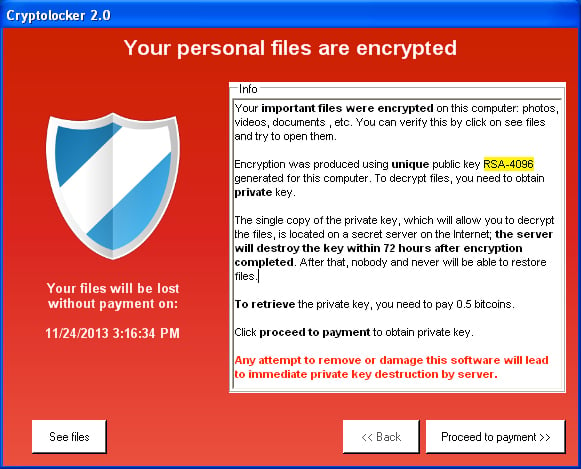Do you want to keep all your photos? Do you want to keep all your documents? Do you want to keep all your client logos? If so, you do NOT want the cyrpto virus or any variant of it.
Talk to anyone who lost their files recently due to clicking a link and you’ll be happy it did not happen to you. Balancing security and comfort is getting tougher and we are all being forced to be less comfortable and more security-minded.
Here is what you need to know:
1. You must have anti-virus installed and you must keep it up to date
A. This is critical but does not guarantee your safety
2. Check links before clicking them
A. Many links look legitimate but are not.
B. Look at the TO and FROM in the email. If it looks odd, don’t click the link.
C. “Hover” over a link in an email to see where it points. If the link is different than the hover text, you should probably not click on the link.
In addition to protecting yourself from viruses, your email can be hacked causing all sorts of issues, including having your bank account password reset. Think about it for a minute. If someone can hack your email password, they can probably reset your passwords on your bank and nearly every other site that uses email to reset your password. You need a strong password for email!
PROTECT YOURSELF
- Download and ensure all your computers use a good anti-virus product. I am currently recommending (recommendations change all the time as new information becomes available) Bitdefender total security which will cover three PCs and is on sale for $40. (This does not guarantee your safety.)
- Be careful and double-check any links or attachments before clicking the link or attachment. No anti-virus system can catch all issues, especially this current nasty Cryptolocker as it evolves quickly.
- Ensure you backup your computer regularly. I recommend crashplan.com, which claims to be able to restore your files to their pre-encrypted version if you get hit with Cryptolocker. (it’s also easy to use.)
- Use a password manager like Lastpass.com to protect your passwords and change your most important passwords (email, banks, etc.) at least every six months using a complex password (at least one number and one symbol in addition to characters). Lastpass also helps you create complex passwords.
Dale Denham, MAS+, is considered the industry’s top technologist and is the chief information officer at Geiger. Read Dale’s thoughts on technology, business, and the promotional products world ever other Tuesday. Follow Dale on Twitter @GeigerCIO.




